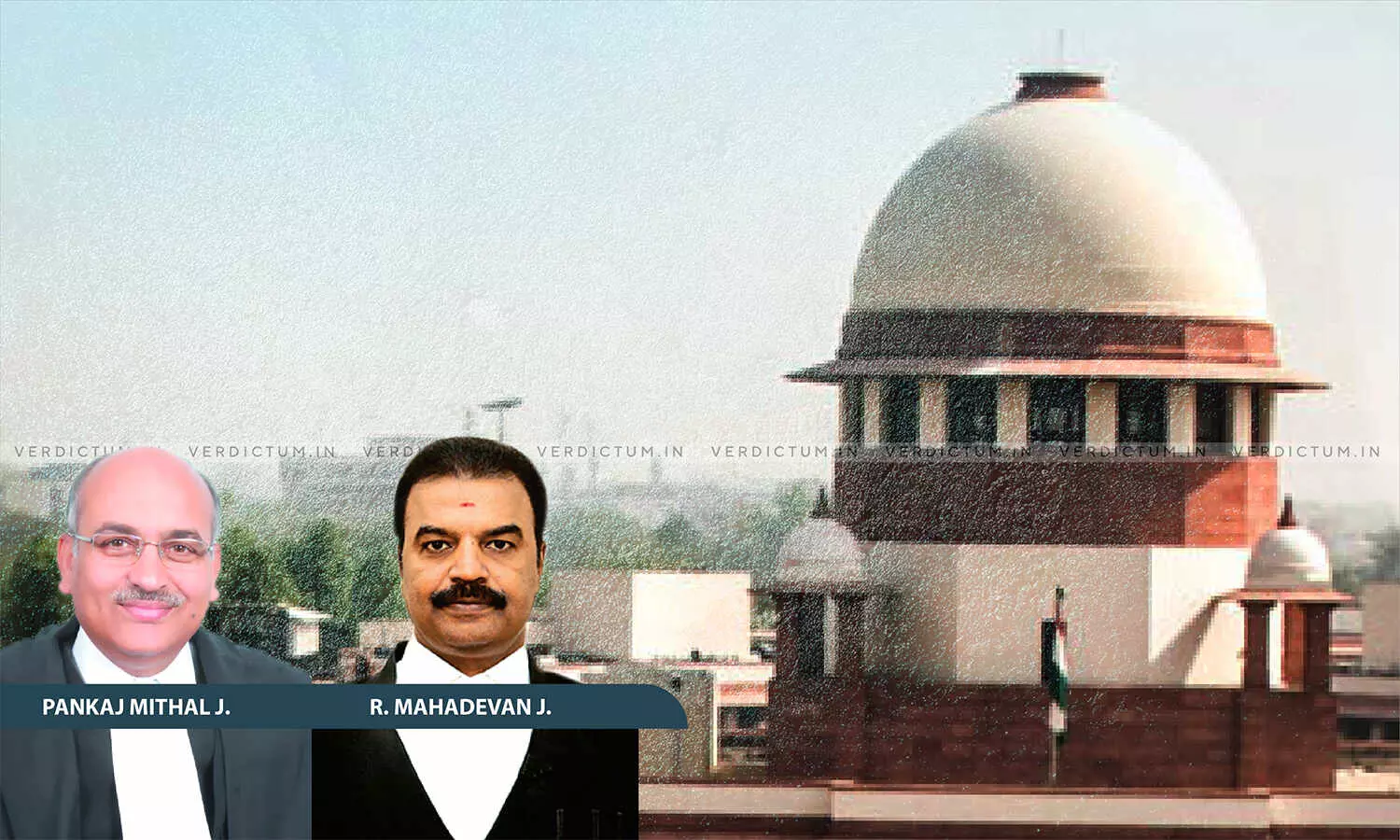
Land Acquisition Act| Grant Of Cumulative Increase In Market Value Of Land Not Absolute Rule: Supreme Court
 |
|The Supreme Court has reiterated that, in Land Acquisition matters, the grant of cumulative increase in the market value of the land is not an absolute rule.
The Court was considering an appeal which raised issues related to determination of fair and adequate compensation for the acquired land, the fruit trees existing thereon and the borewell.
The Division Bench of Justice Pankaj Mithal and Justice R. Mahadevan asserted, “In the instant case, it has rightly not been granted for the simple reason that the Exh.68 which is a relied upon judgment pertaining to the same acquisition, no such cumulative increase was permitted.”
Advocate Anagha S. Desai represented the Appellant while Advocate Aaditya Aniruddha Pande represented the Respondent.
The land owned by the appellant was acquired for the benefit of Vidarbha Irrigation Development Corporation by the State of Maharashtra by issuing a notification under Section 4 of the Land Acquisition Act, 1894. The Land Acquisition Officer passed an award offering compensation of the aforesaid land to the appellant. The Civil Judge allowed the appellant’s reference in part and granted additional compensation. The appellant applied for review of the aforesaid order alleging that he had not been granted any compensation for the 1824 fruit bearing awala trees existing thereon as well as the borewell.
Aggrieved by the order passed on the review application granting compensation, the respondents preferred an appeal under Section 54 of the Act before the High Court.The High Court dismissed the cross objections of the appellant and held that the award of compensation for the awala trees and the borewell was per se illegal. Aggrieved thereby, the appellant approached the Apex Court.
After going through the award of the Reference Court, the Bench noted that the Court had rejected the claim for compensation of awala trees as the same were newly planted and were not fruit bearing at the relevant time. The plantation was reported to be of the year 2003-2004 which was subsequent to the proposal to acquire the land. The court also recorded that no substantial evidence was brought on record to prove the existence of the aforesaid trees or that they were fruit bearing trees. The Bench further noticed that the court while allowing the review application had placed reliance upon the 2nd JMR which was not part of the evidence. “Thus, the said 2nd JMR and the representations were inadmissible in evidence which could not have been relied upon by the court while considering the review application. Moreover, the review application has been allowed in a manner as if the court considering it, was sitting in appeal or was deciding the reference afresh. The manner in which it has been decided was not within the scope of the review jurisdiction and could not have been allowed, that too on the basis of inadmissible evidence.”
As per the Bench, the High Court very rightly set aside the grant of compensation for the alleged awala trees said to be existing on the said land. “Since the court in review jurisdiction could not have allowed any additional compensation as the evidence produced during review was inadmissible, the grant of compensation for borewell is also unsustainable”, it added.
One of the arguments raised by the appellant was that in awarding the compensation for the land, reliance was placed upon an exemplar sale deed of the year 1994 and since the present acquisition was of the year 2003, 10% rise per year was allowed in awarding the compensation but this 10% rise per year ought to have been with cumulative effect.
The Bench relied upon its judgment in Ramrao Shankar Tapase (Supra) and said, “A plain reading of paragraph 28 of the aforesaid decision itself would make it clear that the grant of cumulative increase in the market value of the land is not an absolute rule and that it is optional and may be granted in a given case only.”
Considering that the said exhibit had to be accepted wholly and not in part, the Bench held that there was no arbitrary exercise of power in simply permitting 10% increase in the market value as determined on the basis of exemplar sale deed of the year 1994.Thus, finding no merit in the appeal, the Bench dismissed the same.
Cause Title: Manik Panjabrao Kalmegh vs. Executive Engineer Bembla Project Division Yavatmal [Case No.- Civil Appeal arising out of SLP(C) No. 004494 - 004495 / 2023] 2024 INSC 844
Appearance:
Appellant: Advocate Anagha S. Desai
Respondent: Advocates Aaditya Aniruddha Pande & A. Selvin Raja